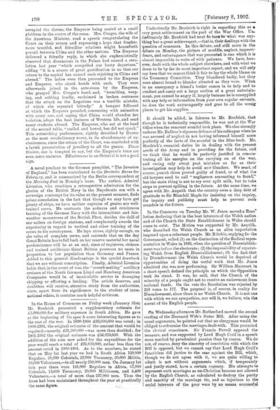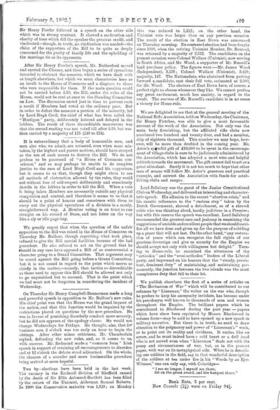On Wednesday afternoon Mr. Rutherford moved the second reading of
the Deceased Wife's Sister Bill After using the usual arguments, he pointed out that no clergyman would be obliged to solemnise the marriages dealt with. This protected the clerical conscience. Sir Francis Powell opposed the measure, and was supported by Lord Hugh Cecil in a speech more marked by paradoxical passion than by reason. We do not, of course, deny the sincerity of conviction with which the Bill is opposed, but we cannot say that Lord Hugh Cecil's fanaticism did justice to the case against the Bill, which, though we do not agree with it, we are quite willing to admit is not without arguments which, if temperately and justly stated, have a certain cogency. Ilia attempts to represent such marriages as an-Christian because not allowed by the English Church, as calculated to destroy the purity and sanctity of the marriage tie,_ and as injurious to the social interests of the poor were by no means successful
Sir 'Henry Fowler followed in a Breech on the other side which was in strong contrast. It showed a moderation and Charity of tone which did the speaker the greatest credit, and vindicated—though, in truth, no vindication was needed—the claim of the supporters of the Bill to be quite as deeply concerned for the purity of family life and the upholding of the marriage tie as its opponents.











































 Previous page
Previous page